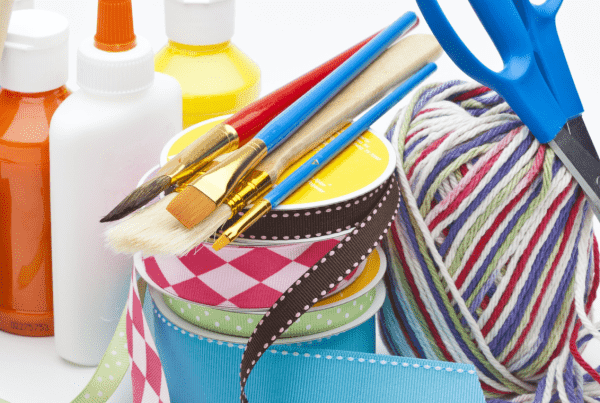From day one of life children begin absorbing the world around them, they begin learning about the language skills needed to be an effective communicator later in life. Children achieve a huge amount in their first few years of life, making it difficult to know if they are always meeting their speech milestones.
The following information outlines the speech, language and literacy skills children should develop by 5 years of age, and what you can do to get them there.
12 Months
By 12 months children should be babbling, and using a variety of different sounds, and they should be beginning to use a few single words. These frequently-used words such as mum or dad, may have only been used a handful of times before 12 months, but should start to be consistently and correctly used around the 12 month mark. Children should also know and respond to their name and be engaging with the people around them.
18 Months
By 18 months your child’s vocabulary is growing; they should now be using between 20-50 words. Children should be able to be understood around 25% of the time. They should also be able to understand and follow one step directions. These may need to be supported with a gesture for example “get the ball” as you point in the direction of the ball.
24 Months
By 2 years of age children should be be able to be understood about 50% of the time and using 200-300 words. They should be beginning to combine their words into a variety of two-word phrases. Two-year olds should be able to follow two step directions without gestural support.
3 Years
At 3 years of age children should be intelligible about 75% of the time and using 900-1000 words. At this stage they should be able to produce all the vowel sounds correctly. Children are typically using short phrases of at least 3 words, and their phrases should continue to increase in length quite significantly over the next 12 months.
At this stage children should be using a range of grammatical information such as marking plurals, possessives, past tense (-ed) and current actions (-ing). Children should be able to follow longer directions and comprehend a range of location concepts.
4 Years
By four years, children are getting quite adept at communicating. Their speech is getting clearer and should be understood by most people 90% of the time. They can answer most questions about daily tasks, and start to answer questions relating to stories that they have recently heard. They are using longer sentences and joining ideas together with words such as ‘and’ and ‘because’.
You should also start to hear pronouns such as he and she, and negations (eg can’t). Four year olds will usually ask lots of questions and can start to tell little stories about recent events. Early literacy skills are also starting to develop at this age – most four year olds start to show an awareness that some words start or finish with the same sounds, and rhyming skills start to develop.
5 Years +
By 5 years, children should be using well-formed sentences and be able to be understood by most people. Most speech sounds should be correct, with errors on r, th, and l still common. 5 year olds can understand complex instructions involving up to three steps (eg put on your shoes, get your backpack and line up outside) as well as understanding time related words such as before, after, now and later. Children in this age group are getting better at holding conversations, and they can sequence simple stories successfully. Early literacy skills should also be developing by 5 years with some recognition of sounds, letters and numbers.
Older Children
Speech Pathologists also get involved with older children who are not developing literacy skills are expected. By the end of Prep, children should know what sounds the letters of the alphabet make, and use those sounds to tackle words they don’t know when reading. Most children can sound out words with 3 sounds (eg mop, fun, set) by this stage. Generally speaking, if a child isnt meeting reading expectations at any stage in their schooling, an assessment by a speech pathologist is recommended.
In general, children should be interacting with others socially from an early age. The quality of those social interactions should increase along with their language skills. As a basic rule of thumb, if you are concerned, it is worth getting an assessment. Speech and language delays can have considerable impacts on a child’s ability to interact well with others. It can also impact their ability to learn to read and write.
Free services are available in most places in Australia through community health services. Sometimes also in schools as well as private clinics which can assess your child for a fee.
How To Help Speech Development And Communication At Home
At home it’s really all about input. One really nice strategy is to allocate 15-20 mins of playtime each day where you focus on feeding in language. No questions, no rules, just lots of talk about what you are doing, what your child is doing, and wondering out loud.
Books are also a great tool. It’s worthwhile using book time to talk about what you have read or what you can see on the page. There is so much more language to be modeled than just the words written by the author. You can talk about how characters are feeling, what might happen next, or something similar that you or your child have experienced.
Try to avoid correcting your child, and model the correct word/sentence for them instead. It’s a slight difference but the idea isn’t to tell them that they said it wrong or to expect a correction. Just provide a correct model over the top of the word they found tricky.
How To Recognise Issues
If an area of difficulty has been identified with your child’s speech, language or literacy skills, or if you’re concerned about their development, it’s worthwhile booking an assessment with a Speech Pathologist. The assessment will identify if there is a delay and the Speech Pathologist will discuss options for treatment with you.
Families are able to book assessments without the need for a referral from the GP. Families simply need to choose a Speech Pathologist they would like to see and ring to book an assessment session. During this initial phone call, you will likely be asked about your concerns for your child, as well as some basic details.
This will help the Speech Pathologist prepare for your initial session and choose the right assessment for your child. During this phone call sessions costs will be outlined, and you may be asked if you have any type of funding or rebates.






